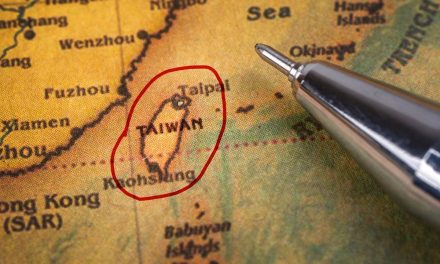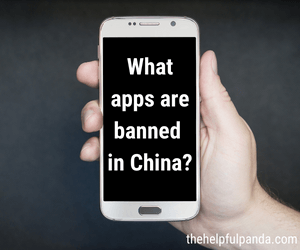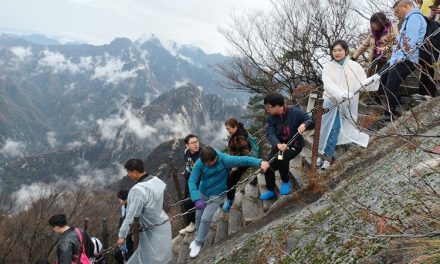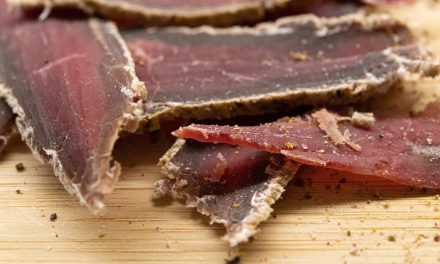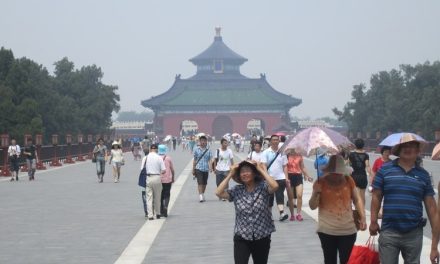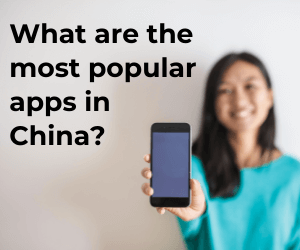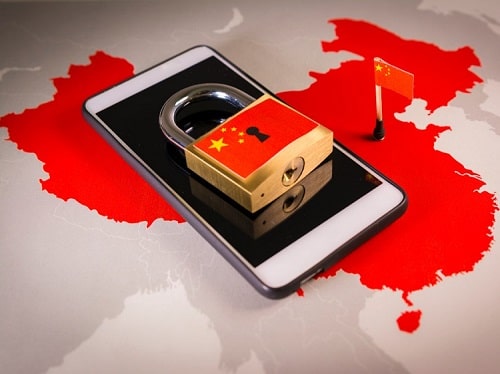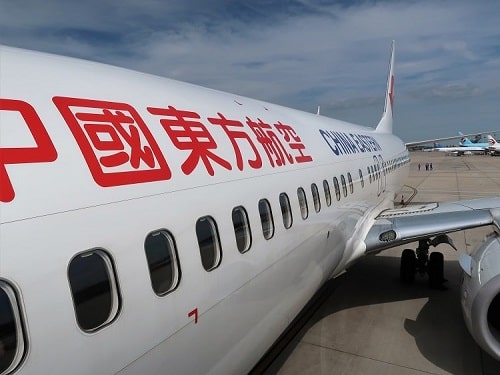Chinglish is real. And it’s taken China by storm.
You really don’t know how different another culture is until you spend time in that country.
This doesn’t just apply to the big things like history and food, but also to small habits and ways of living that you wouldn’t think about normally. China is no exception to this.
If you travel to China and spend a bit of time there, sooner or later you’ll learn just how different their culture is to your own. And one of these differences is what’s known as Chinglish.
So, let’s take a look at this fascinating language, how it came about, and where you’re likely to encounter it.
And make sure you scroll to the bottom to see the great photos!
What is Chinglish?
It’s a slang term for English that’s poorly translated or overly influenced by the Chinese language.
It usually refers to a mix of English and Mandarin, China’s official language. But it can also refer to mixes with Shanghainese, Cantonese, and Taiwanese Hokkien.
Chinglish incorporates English with Mandarin Chinese vocabulary or constructions, making it ungrammatical, strange sounding, or nonsensical to English speakers.
Chinglish also uses English terms in a Chinese context, which means that the words you know may not mean the same once you get to China!
This language mix can be different from native English on all linguistic levels, including:
- Lexicon or vocabulary
- Syntax or the arrangement of words and phrases to create sentences
- Phonology or the sounds that make up words
- Discourse or written and spoken communication.
All this can give even the most seasoned traveler a good dose of culture shock.
How did it evolve?
Chinglish probably evolved because the main Chinese language (Mandarin) is very different to English. Because it’s so different, something that makes sense in Chinese often ends up sounding very odd when translated to English.
Hybrid forms of English aren’t a rare thing. In fact, they’re found all over the world. Other combination varieties of English include:
- Britalian from Italy
- Denglisch from Germany
- Engrish from Japan
- Singlish from Singapore
- Tinglish from Thailand
- And more…
This hybrid form of English actually has a fairly long history. The first time Chinglish showed up in a dictionary was in 1957, but the use of the language dates back to the eighteenth century when foreigners did business with the Guangzhou locals.
This makes it one of the oldest hybrid forms of English in the world.
Where can you see Chinglish?
To be honest, you’ll see Chinglish all over China in Chinese restaurants and on signs, clothing, menus, and sometimes in the most unexpected places.
The key point here is that Chinglish is often a direct translation of Chinese words and grammar into English, so the result reflects just how different the Chinese language is to English.
Here are just some Chinglish examples that you might see around:
- ‘Slip and fall down carefully’ on signs where the ground is slippery or uneven
- ‘Deformed man toilet’ instead of disabled men’s toilet
- ‘Erection in progress’, which actually refers to an area that’s dangerous because of construction
- ‘Be careful about a landslip’ in a bathroom with a slippery floor.
Sometimes, the Chinglish will be confusing rather than funny. For example, in casual restaurants in Hong Kong you can buy a ‘set’.
This means a meal, which includes set things like rice and a drink.
Brand names themselves can be Chinglish, too. This is to avoid copyright issues or simply because the creator didn’t have a good grasp of the English language.
I particularly like Calvan Klnio, which you’ll see below.
Lots of strange expressions
There are lots of strange Chinglish terms and expressions, many of them unique to regions or even groups.
A good example of this is ‘Good morning’ (古德猫宁) which is gǔ dé māo níng in pinyin. It literally means ancient car tranquility.
And recently, hā luó (哈 罗) for ‘hello’ has crept into the local lingo.
You also have more eccentric offerings like ‘You can you up, no can you BB’ (你行你上,不行别BB), which is pronounced Nǐ xíng nǐ shàng, bù xíng bié bī bi and translated as ‘put up or shut up’.
Another common example that students will hear all the time is ‘Good good study, day day up’ (好好学习,天天向上). The pinyin for this is Hǎo hǎo xué xí, tiān tiān xiàng shàng and the meaning is ‘study hard and make progress every day’.
Some Chinese people, when speaking English, will refer to the bathroom/toilet as ‘WC’ which stands for water closet.
And, some English acronyms are actually spelled out when spoken, not only in Chinglish but also in Mandarin. For instance, app is pronounced ‘a-p-p’ and the famously comfy wool slippers, known as UGG, are pronounced ‘u-g-g’ in China.
It really makes you think!
Swear words in Chinglish
Yes, you read that right, now we’re going to talk about swear words or phrases in Chinglish.
To be honest, this is more common than you might think, and these funny/shocking/rude words or phrases are most often seen on clothing but sometimes on street signs.
One example of this is signs that tell people to f%#* various inanimate objects. This is because of a Chinese word that has numerous meanings depending on the pronunciation.
This word is also a slang term for a certain swear word. Obviously, there is no pronunciation when it comes to street signs, so signs all over China tell foreigners to get too personal with objects like cabbages and fruit.
However, as the standard of English in China has been improving in recent times, you’ll see less and less rude Chinglish signs.
The fight against Chinglish
The Chinese government has made repeated efforts to wipe out Chinglish, particularly on signage, because of concerns about embarrassing or confusing visitors. These efforts are also an attempt to protect China’s public image.
In 2009, the Chinese government began a campaign to erase Chinglish ahead of the 2010 World Expo, and there was another attempt before the Beijing Olympic Games.
And these two attempts weren’t the first or the last either.
But despite all these efforts, Chinglish is still going strong in China these days, so it seems that it will be with us for the foreseeable future.
Chinglish photo gallery

I can kind of see where they were going with these ‘no exit’ signs. Image supplied by Mike Cairnduff.

There are plenty of Chinglish brands in China. Image supplied by Mike Cairnduff.
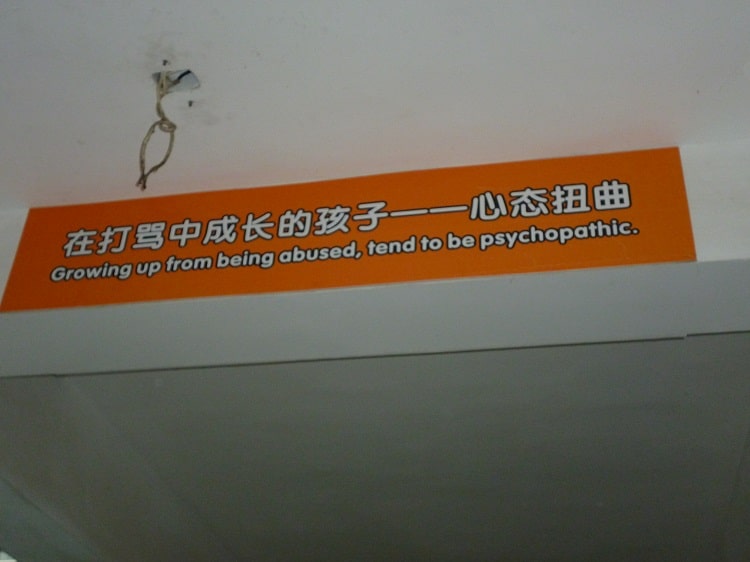
Whatever this means, it can’t be good. Image supplied by Mike Cairnduff.

Who would have thought bread could be fashionable? Image supplied by Mike Cairnduff.

A shortened translation which doesn’t work. Image supplied by Mike Cairnduff.

Lost in translation. Image supplied by Mike Cairnduff.

Clothes with strange expressions are common all over China. Image supplied by Mike Cairnduff.

If only the government knew that their propaganda sign had a dirty meaning. Image supplied by Mike Cairnduff.

Truer words have never been spoken. Image supplied by Mike Cairnduff.

Typos are extremely common. Image supplied by Mike Cairnduff.

A very bold statement! Image supplied by Mike Cairnduff.
If you want to see more funny Chinese pictures and photos, visit this page.
Learning to understand Chinglish
You’ll probably struggle to understand Chinglish while you’re time in China unless you have a flexible mind.
Mandarin Chinese is fundamentally different to English and the Chinese culture is incredibly different as well.
This makes a disconnect that can leave English speakers struggling to understand the meaning of Chinglish terms, especially when they’re used among broken English sentences.
I know that I did and still struggle to understand Chinglish. This continues to this day, when I read translated Chinese novels.
Some of the descriptions of places and people as well as translated idioms sound so strange to my ‘ears’ and I can’t understand them at all. But don’t let this be an excuse to not engage.
Work on understanding as much Chinglish as you can, because it will add real color to your day-to-day interactions in China and once you get back home.
And you can have fun with it, too!
I hope you liked my article about the amazing Chinglish language. I’ve also written one about what Chinese people wear, which you’ll find interesting.
Main image credit: Supplied by Mike Cairnduff.
FAQ about Chinglish
What is Chinglish?
It’s a kind of English that’s poorly translated or overly influenced by the Chinese language. You’ll see this unique blend in printed material and signs but there are also words and expressions you’ll hear that sound strange or nonsensical.
Is Chinglish a real language?
Yes and no. Yes, in the sense that you’ll come across some crazy translations, words and expressions in China. But no, in the sense that it’s not an official, recognized language of any kind.
How can I learn Chinglish?
The best way to start incorporating some Chinglish into your life is by going to China. Spend as much time as you can with the locals and you’ll start muddling up your English in no time.



